On 25 August 2025, during the commemorative ceremony marking the 80th anniversary of Vietnam’s diplomatic service, General Secretary Tô Lâm bestowed upon Nguyễn Thị Bình the title of Labour Hero — an honour recognising her lifelong dedication to the nation and her enduring legacy in international diplomacy.
Original Vietnamese version available here
Đọc bài viết tiếng Việt tại đây
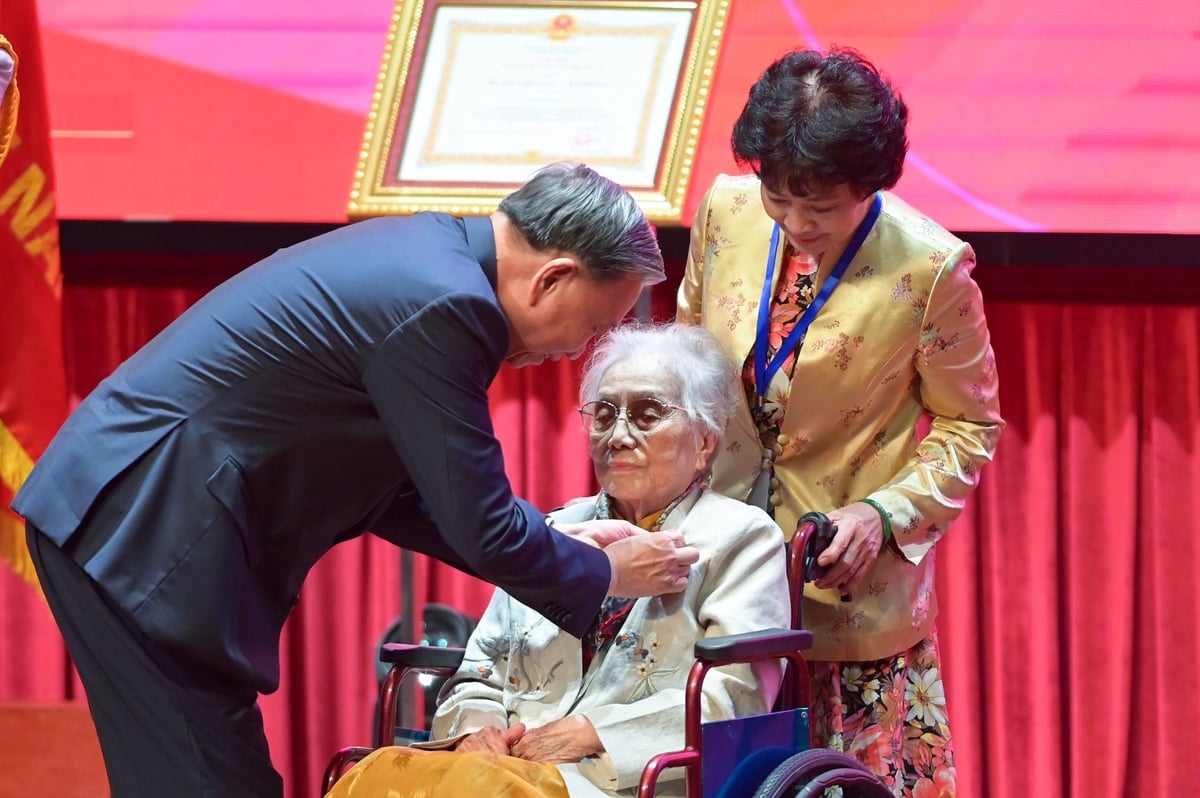
At 98 years old, her silver hair glistening under the lights, she moved slowly yet gracefully towards the podium. Her eyes, still bright with resolve, reflected the depth of a century lived in the service of her country. Behind this solemn moment lies a lifetime of devotion — a tapestry where personal sacrifices are interwoven with the defining milestones of Vietnam’s history.
Born in 1927 in Quảng Nam Province into a patriotic family, she was originally named Nguyễn Thị Châu Sa. From a young age, she committed herself to the revolutionary cause. In August 1945, amid the fervour of a nation reclaiming independence, the young woman in her twenties stepped onto history’s stage — guided by her passion, intellect, and an unyielding love for her homeland.
The Flame of Youth and a Journey to the World
Nguyễn Thị Bình’s early years were marked by studies at Lycée Sisowath in Cambodia, then the Faculty of Literature in Hanoi, before pursuing further education in France. Those formative years “opened her eyes to the world,” as she witnessed the intricacies of international politics and gained a deeper appreciation for the values of independence and sovereignty.
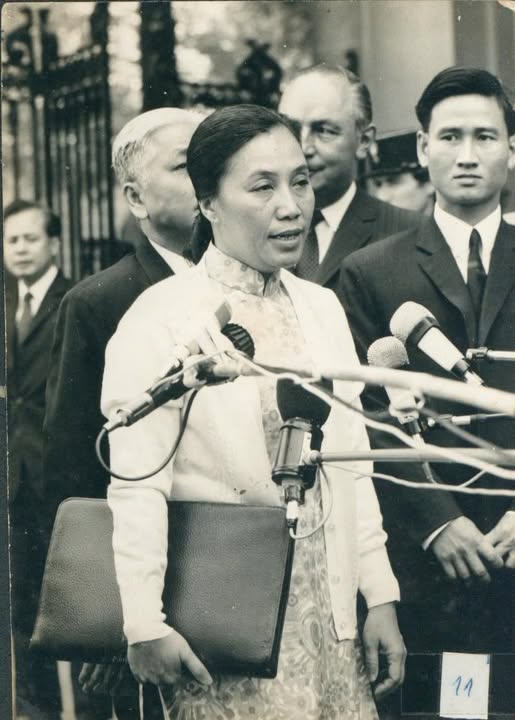
Her life took a defining turn in the late 1960s when she became Head of the Negotiating Delegation of the Provisional Revolutionary Government of South Vietnam at the Paris Peace Talks. It was more than a political assignment — it was a “battlefield without gunfire”, where every word and gesture carried the weight of a nation’s future.
Spanning nearly five years (1968–1973) and over 201 official sessions, alongside countless informal meetings, the Paris Peace Talks tested the endurance of Vietnam’s diplomacy. Amid immense pressure from global powers, Nguyễn Thị Bình — affectionately called “Madame Bình” by the international press — emerged as a remarkable figure.
In her traditional “áo dài”, the petite Vietnamese woman stepped into cold negotiation rooms in Paris with unwavering poise, steady eyes, and a calm yet assertive voice. Her articulate arguments left lasting impressions, but it was her humanitarian perspective that resonated most: “We do not fight to divide our country, but to reunify it in peace”.
Simple yet profound, these words transcended the moment, capturing the essence of a nation’s unrelenting desire for unity and dignity.
Paris — Tears That Spoke for a Century
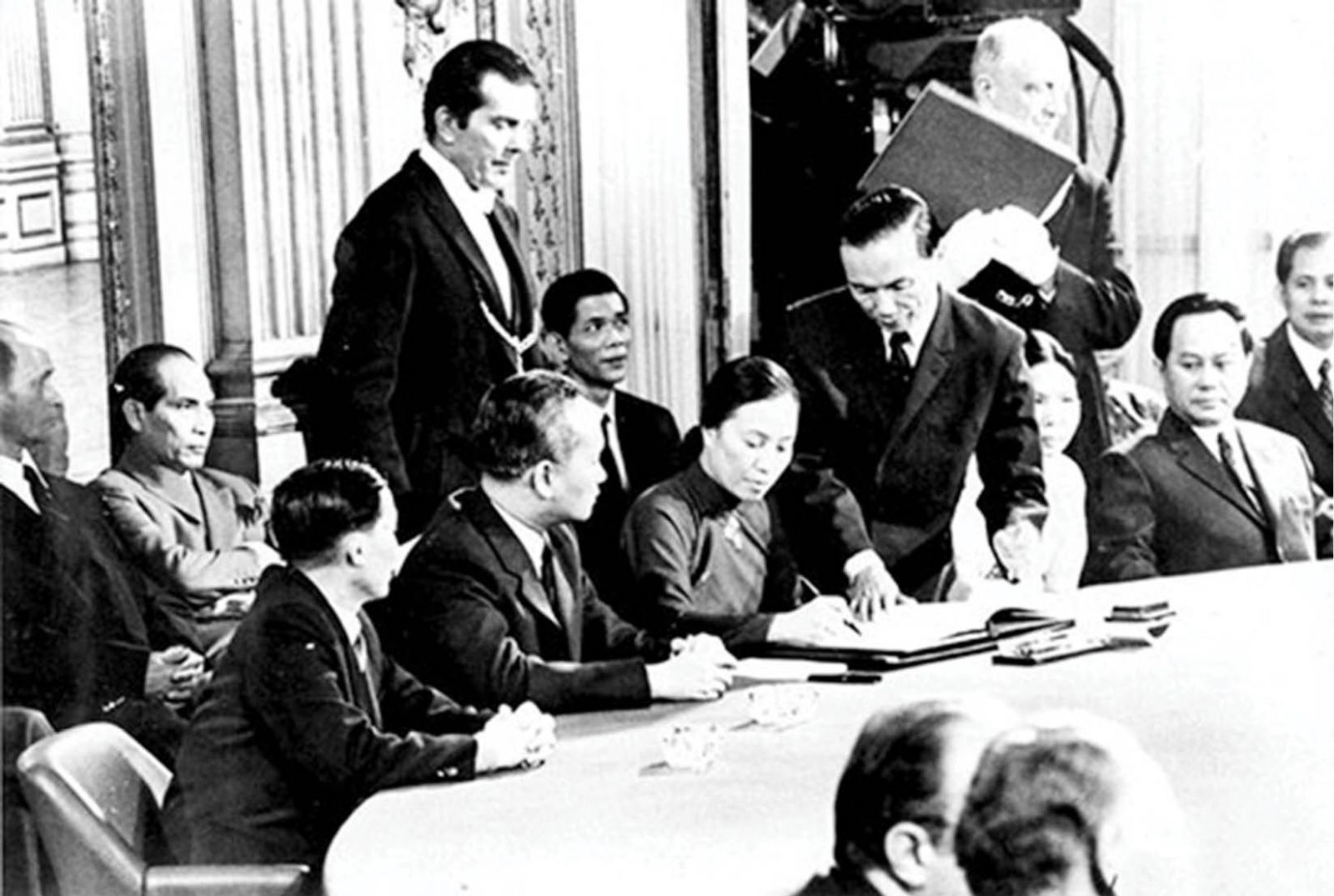
On 27 January 1973, inside the hall where the Paris Peace Accords were signed, Nguyễn Thị Bình became the only female chief negotiator to place her signature on that historic document. The moment marked not just a diplomatic triumph for Vietnam but also a declaration of the country’s soft power — a blend of intellect, resilience, and compassion.
Recalling that day, she once shared: “As I signed the agreement, my eyes welled with tears. Not out of victory, but because I thought of the countless lives lost to reach this moment”.
Her words hold an enduring poignancy. Behind the intense debates lay sleepless nights, perilous crossings between continents, and the quiet grief of comrades lost along the way. For Nguyễn Thị Bình, Paris was more than a location; it was a symphony composed of blood, sacrifice, hope, and the eternal longing for peace.
From Diplomat to Inspiration
Following Paris, Nguyễn Thị Bình assumed a series of pivotal leadership roles: from Minister of Foreign Affairs of the Provisional Revolutionary Government, to Vice President of the Socialist Republic of Vietnam, to multiple terms as a National Assembly delegate, and later Chairwoman of the Vietnam Peace and Development Foundation.
Across every position she held, one principle remained constant: an unwavering commitment to principles paired with remarkable flexibility in approach. It was this balance that helped guide Vietnam from the ruins of war towards becoming an active and responsible member of the international community.
Speaking at the ceremony marking the 80th anniversary of Vietnam’s diplomatic service in 2025, she reflected: “Diplomacy is a special battlefield where the strength of faith, intellect, and courage shapes the destiny of a nation. I believe today’s generation will continue elevating Vietnam’s standing on the global stage”.
Her words resonate far beyond the walls of diplomacy; they are part of a spiritual legacy, an enduring message for future generations.
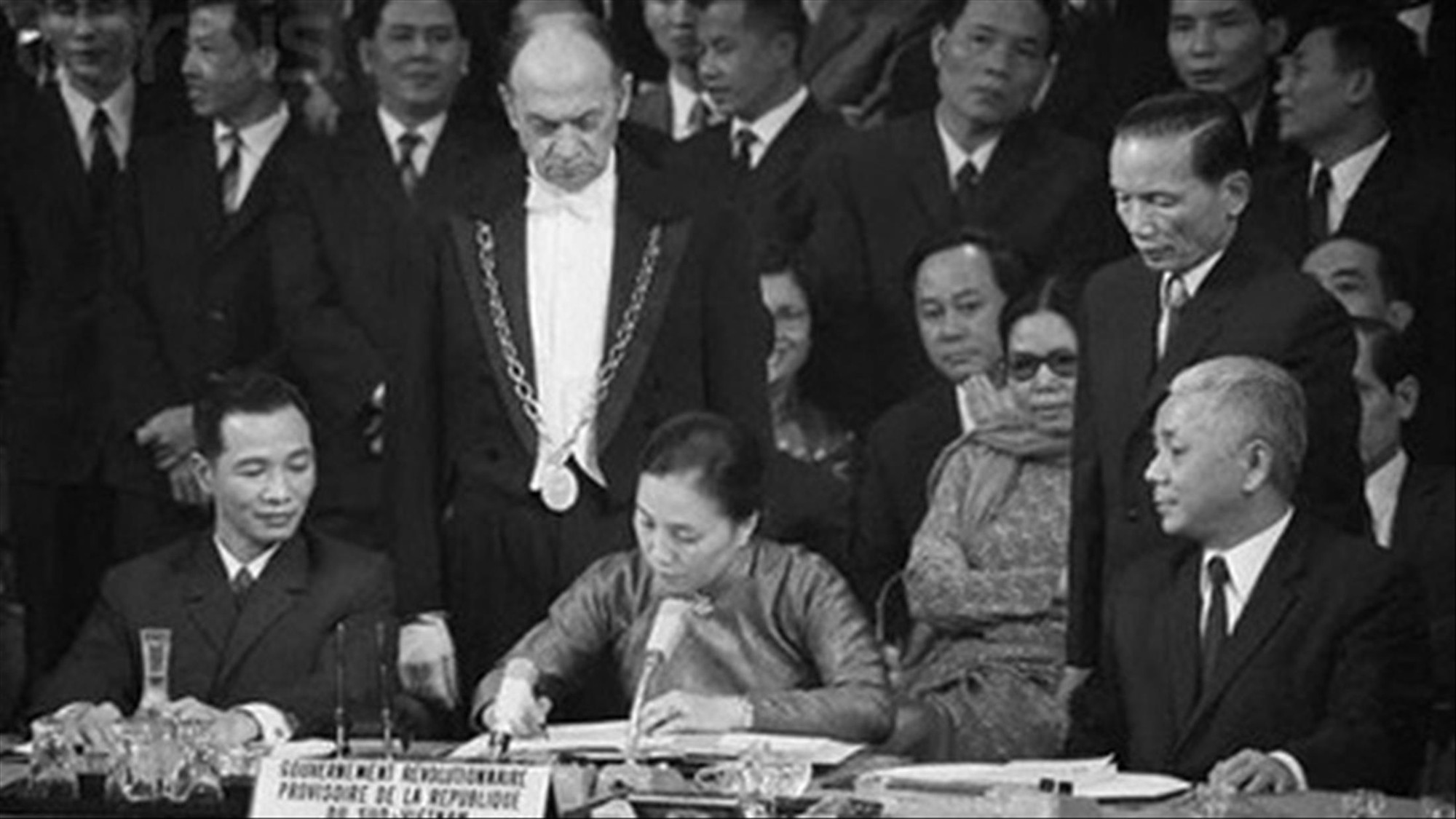
Honours and Legacy
The title of Labour Hero conferred upon Nguyễn Thị Bình this year is not merely a personal accolade but a tribute to an extraordinary diplomatic legacy. Throughout her life, she has received numerous distinctions, including the Ho Chi Minh Order, the First-Class Resistance Medal, the Great National Unity Medal, and the Freedom Medal, First Class, awarded by Laos, alongside international honours recognising her contributions to peace, human rights, and the advancement of women.
Yet, beyond all official awards, perhaps the highest honour history has granted her is the deep respect of the Vietnamese people and the admiration of global peers. To countless generations, Nguyễn Thị Bình represents far more than a diplomat — she embodies Vietnam’s dignity, intellect, and indomitable spirit. Her story continues to inspire well beyond geographic and temporal boundaries.
The Woman Standing in History
What moves people most when speaking of Nguyễn Thị Bình is her ability to balance strength and grace. On the negotiating table, she was resolute and uncompromising; beyond it, she remained the epitome of Vietnamese elegance — the soft sway of an “áo dài”, a serene voice, a gentle smile, all framing a will of steel.
This was her soft power: the belief that a small nation could stand shoulder to shoulder with global powers if anchored by ideals, unity, and intellect.
Those who worked alongside her recall her distaste for ostentation. “Let results speak for themselves,” she would say. Even at nearly a century old, she continues to read extensively, follow current affairs, and keep a keen interest in Vietnam’s evolving role in the world.
Nguyễn Thị Bình long ago transcended the notion of titles. She lives as a witness to history, yet constantly enriches it with wisdom, humility, and compassion.
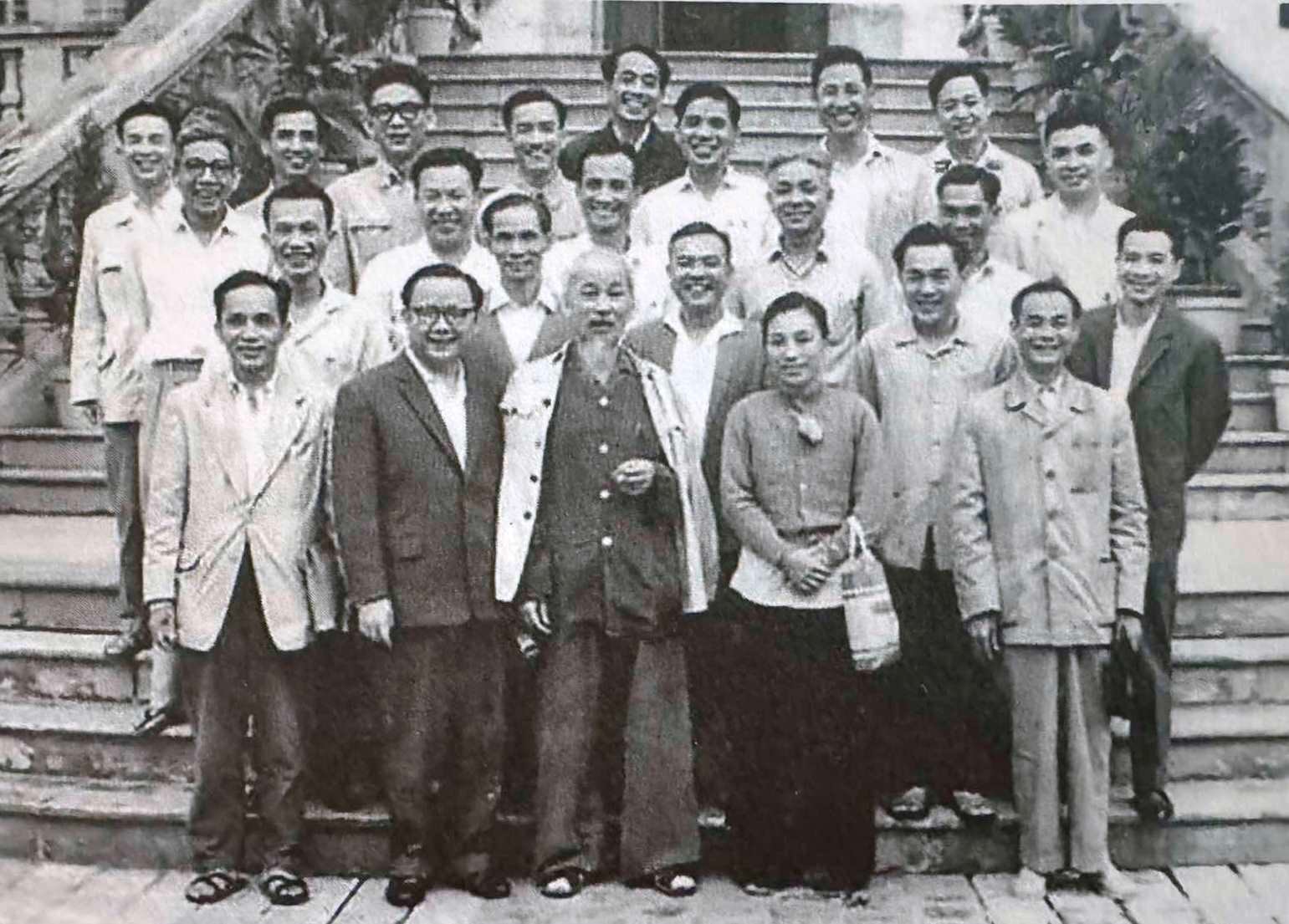
Lessons for the Future
Nguyễn Thị Bình’s life is not merely a chapter in Vietnam’s history but a compass for future generations. Her journey teaches us the courage to face adversity, the intellect to navigate complex struggles, and the empathy to seek common ground amid differences. Above all, it imparts an enduring faith in collective strength and the universal yearning for peace — values that have carried Vietnam through some of its greatest trials.
In a rapidly shifting world where traditional ideals are constantly tested, her story reminds us that diplomacy is not only the art of compromise but, more profoundly, the art of protecting a nation’s dignity.
Nearly a century has passed, yet the image of “Madame Bình” — the petite woman in a flowing “áo dài”, stepping into global negotiation rooms with unwavering eyes — continues to inspire.
History will remember Nguyễn Thị Bình not only as a witness to monumental change but as one who helped shape it. Her greatest legacy lies in a simple truth: that Việt Nam, a peace-loving nation, can stand confidently on the world stage through its intellect, resolve, and dignity.
Text: MINH NGUYỄN | Image: Internet

Read more

